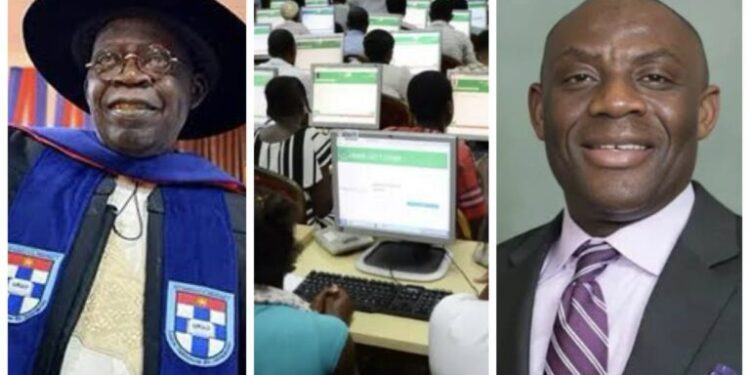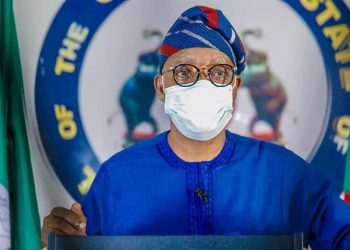Education minister Tunji Alausa has acknowledged that President Bola Tinubu’s integrity policy was responsible for the mass failures recorded in the just-concluded 2025 Unified Tertiary Matriculation Examination.
Mr Alausa stated this in the wake of the results released by the Joint Admissions and Matriculation Board for the 2025 UTME, in which only 420,000 candidates out of the 1,955,069 students who sat the exam this year scored above 200.
In an interview with Channels TV on Tuesday, Mr Alausa attributed the high failure rate in this year’s UTME to the anti-malpractice policy introduced by Mr Tinubu, which he said ensured only the “hard-working ones” passed, while accusing the candidates that scored below the 200 threshold of corruption.
“That’s a big concern, and it’s a reflection of exams being done the proper way. JAMB conducts its exam using a computer-based testing system. They’ve implemented strong security measures, and as a result, fraud or cheating has been completely eliminated. Unfortunately, we cannot say the same for WAEC and NECO,” the education minister explained.
Mr Alausa added, “We have to use technology to fight this fraud. There are so many ‘miracle centres’, and that is simply unacceptable. People cheat during WAEC and NECO exams and then face JAMB, where cheating is nearly impossible. That’s the disparity we’re seeing now. It’s sad.
“The worst part of cheating is that it disincentivises the hard-working ones. If I’m preparing for WAEC or NECO and I know some classmates already have access to the questions, do you think I’ll still study hard? “No, I’ll be tempted to join them. That’s how good students are corrupted, and that’s exactly what we must stop.”
Mr Alausa’s comments came as a surprise as the minister resorted to shielding Mr Tinubu’s government and past administrations of complicity in the mass failure by accusing the students of being cheats and those who had previously passed the exam had cheated their way through.
The minister also sidestepped the main issues that have plagued the Nigerian education sector in recent years, including the inadequate number of teachers and unqualified tutors, decrepit infrastructure across the country and scarcity of instructional materials.
Furthermore, the country’s academic curriculum is widely criticised as being heavily outdated compared to other countries and can no longer provide solutions to modern-day challenges. Also, the lack of cohesion in academic calendars being followed nationwide has caused huge disparities among students.
Recently, schools were closed for up to one month in many states in Northern Nigeria because of the Ramadan fast, causing them to lose valuable hours of classes as the 2025 UTME approached.
According to analysts, these challenges underline a systemic failure in the country’s education sector rather than Mr Alausa’s one-sweep conclusion that the mass failures recorded in the 2025 UTME boil down to exam malpractice.







